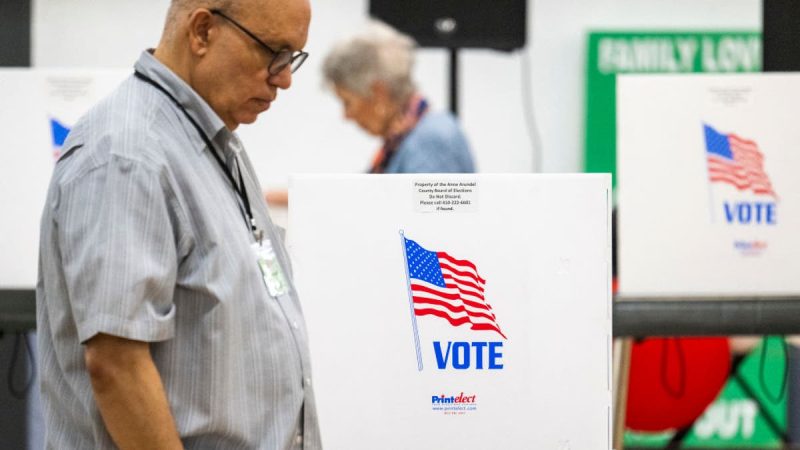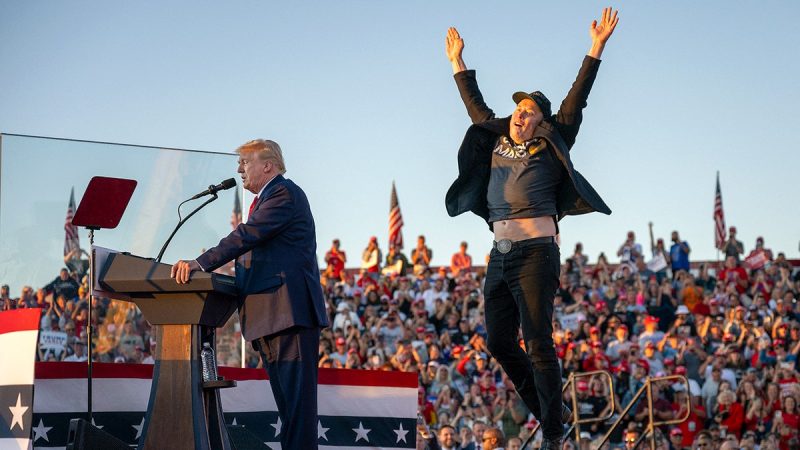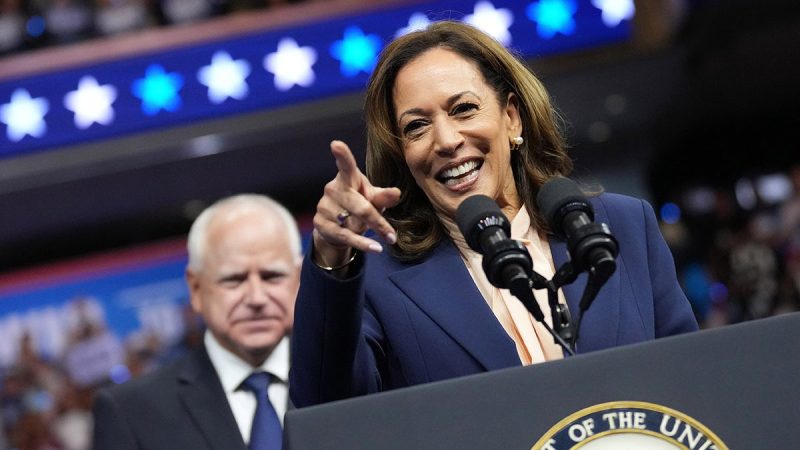
‘Polarizing’ way of picking party nominees targeted in ballot questions in these 6 states
A ballot initiative to implement open primary voting across six states is gaining momentum, according to advocates of the proposal who say it will eliminate ‘polarizing’ and ‘extreme’ candidates from making it onto the ballot, allowing a more diverse group of candidates to represent voters.
Proponents hope this year’s success is indicative of future changes to U.S. elections.
Colorado, Arizona, Idaho, South Dakota, Montana and Nevada qualified for an open primary initiative for the 2024 ballot, Unite America – a philanthropic venture fund – found. Other states across the country already have an open primary system, including Alaska, Texas, Minnesota, Wisconsin and Virginia, among others.
Research from the Unite America Institute reveals that just 8% of voters elected 83% of the U.S. House of Representatives in 2022. In 2024, 7% have already elected 84%. Unite America attributed this ‘primary problem’ to the polarization and gridlock hindering Congress and state legislatures from addressing key issues important to voters that often go unnoticed come election season.
Nick Troiano, executive director of Unite America, told Fox News Digital that an open primary system ‘would literally enfranchise millions of Americans closed out, and that includes independents.’
In an open primary system, voters can choose which party’s primary to participate in, regardless of their own party affiliation. This allows registered voters, including independents, to vote in any party’s primary, promoting broader participation.
By contrast, a closed primary system requires voters to be registered with a specific party to vote in that party’s primary. This approach ensures that only party members can influence the selection of their candidates, often leading to more ideologically consistent nominees but potentially excluding independent voters from the process.
‘So this gives voters a lot more freedom to vote for whom they want, you know, regardless of party. And that’s the belief at the end of the day is that our election system should serve voters, not parties as private organizations,’ Troiano told Fox News Digital.
Another advocate of the open primary system is former Colorado Congressman Ken Buck. Buck, who retired as a representative earlier this year to work behind-the-scenes on election reform projects, said that many American voters are currently frustrated with their presidential choices.
He noted that recent election reforms in various states are primarily focused on Senate and gubernatorial races, rather than the presidential election. This discontent may create an opportunity for meaningful reform in the electoral system, he said.
‘AOC beat a member of leadership in the Democratic primary, and she did it again with a very small percentage,’ Buck, who endorsed the open primary ballot inititative in his state, told Fox News Digital. ‘It’s like 12% of the overall registered voters in the in her district, voted for her in that primary, and then, because it’s a blue district, she becomes the member. That’s the example.’
Buck believes that these changes could lead to higher-quality candidates, as current primary systems often allow candidates to win with a small percentage of the vote—sometimes as low as 38%—due to a crowded field. He suggested that such candidates often lack broad support among voters and may prioritize social media appeal over addressing the pressing issues facing constituents.
Buck and Troiano said so far, typically the party that is most in control of the state are opposed to the ballot measure.
‘So in Nevada, the Democratic Party, and Idaho, it’s the Republican Party,’ Troiano said. ‘But we make the case that this is good for voters today and is good for democracy.’



